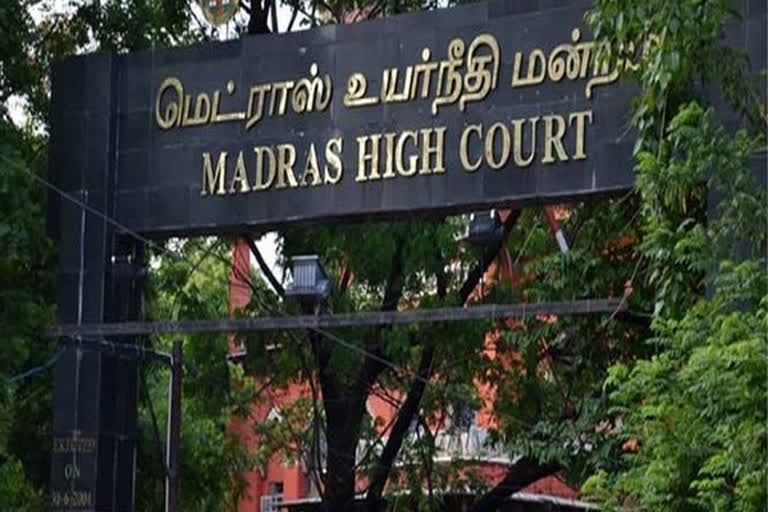Chennai: The Madras High Court has deplored the rigid stand of the authorities concerned in insisting on the differently-abled people coming in person for issuance of disabled certificates. "When community certificates are received at doorstep, can the State not apply the same model in the case of persons with disability also? The bureaucracy of the Indian State is described as its steel frame. It must be malleable enough to reach out and address the needs of the last person," Justice G R Swaminathan observed.
The government must issue a standard protocol to cover cases of those who are suffering from other disabilities, particularly, motor related physical disabilities. Tamil Nadu can boast of possessing one of the best health infrastructure in the country. It is being helmed by persons of competence, the judge said. The judge was coming to the rescue of Saikumar, a 61-year old differently-abled person, who was asked by the authorities in the institute for mental health in Kilpauk to come for the second time, for obtaining the permanent disabled certificate for his survival.
"India is a party to the Convention on the Rights of Persons with Disabilities, 2006. Article 18 of the said Convention expects the states parties to ensure that the persons with disabilities are not deprived on the basis of disability of their ability to obtain, possess and utilise documentation of identification. Declaration on the Rights of Mentally Retarded Persons, 1971 proclaims the necessity of protecting the rights and welfare of the physically and mentally disadvantaged," the judge pointed out.
He further said the declaration on the Rights of Disabled Persons, 1975 also affirms the rights of physically-challenged persons to services which enable them to develop their capabilities and skills to the maximum and will hasten the process of their social integration or reintegration. The need of a disabled individual to obtain identification paper and certificate of disability hardly requires special emphasis, the judge said and added that he was personally aware of the challenges faced by caregivers in cremating their differently-abled wards and children during the peak of COVID-19 because of absence of identification papers such as Aadhaar. Article 21 of the Constitution enshrines the fundamental right to life and liberty.
Differently-abled persons, who are obviously entitled to rights guaranteed under Article 21 of the Constitution, are entitled to obtain a certificate under Section 58 of the Rights of Persons with Disabilities Act, 2016 without any hassle or difficulty. The international conventions as well as the statutes governing their rights speak of barrier-free access to rights and services. Without obtaining the certificate, the physically-challenged will be denied access to certain fundamental rights and facilities. Consequently, they cannot lead a quality life, the judge said.
The assessment process must be as simple as possible. It must not cause any difficulty or trauma or even the least burden to the individual concerned. One does not know what can trigger panic and anxiety. There are children, who see an ordinary balloon, going berserk. It is clinically appropriate that assessment for issuing such certificates is done at their homes, the judge added and held that persons suffering from mental retardation or mental illness are entitled to have the assessment done at the place where they reside.
In this case, the assessment of the petitioner's son was already done in the premises of the mental health institute. The petitioner's son had already been noted as suffering from mental retardation. Insisting that he should be produced again reeks of arbitrariness. "I therefore direct the second respondent (Institute) to issue a certificate certifying that the petitioner's son is suffering from permanent disability ie., mental retardation," the judge said and allowed the petition from T R Ramanathan, a widower and a nonagenarian, last week. (PTI)



